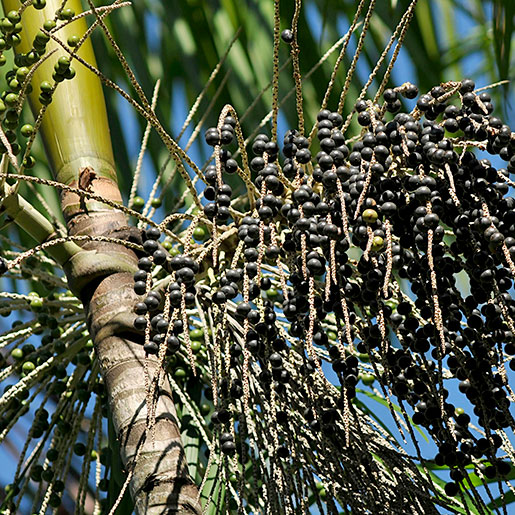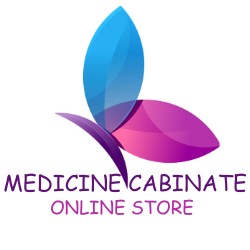Blog
Acai: National Center for Complementary and Integrative Health
Acai
Common Names: acai, acai berry, açaí
Latin Names: Euterpe oleracea, Euterpe badiocarpa
Background
- The acai palm tree, native to tropical Central and South America, produces a deep purple fruit. The acai fruit has long been an important food source for indigenous peoples of the Amazon region.
- Acai products have become popular in the United States, where they have been promoted for weight-loss and anti-aging purposes.
- The Federal Trade Commission has taken action against companies that marketed acai weight-loss products in allegedly deceptive ways.
- Acai fruit pulp has been used experimentally as an oral contrast agent for magnetic resonance imaging (MRI) of the digestive tract.
How Much Do We Know?
- Very little research has been done in people on the health effects of acai products.
What Have We Learned?
- There’s no definitive scientific evidence based on studies in people to support the use of acai for any health-related purpose.
- No independent studies have been published in peer-reviewed journals that substantiate claims that acai alone promotes rapid weight loss. When investigating the safety profile of an acai-fortified juice in rats, researchers found no differences in body weight changes between animals given the juice and animals not given the juice.
- A preliminary study suggested that eating acai fruit pulp might reduce blood sugar and cholesterol levels in people who are overweight.
- Laboratory studies have focused on acai’s potential antioxidant properties, and a juice blend with acai as the main ingredient has been shown to have an antioxidant effect in people. (Antioxidants are substances that may protect cells against certain types of damage.)
What Do We Know About Safety?
- Acai pulp appears to be safe when consumed in the amounts commonly used in foods; however, drinking unprocessed acai juice has been linked to an illness called American trypanosomiasis (also known as Chagas disease).
- Consuming acai might affect MRI test results. If you use acai products and are scheduled for an MRI, check with your health care provider.
- Little is known about whether it’s safe to use acai during pregnancy or while breastfeeding.
Keep in Mind
- Take charge of your health-talk with your health care providers about any complementary health approaches you use. Together, you can make shared, well-informed decisions.
For More Information
- Using Dietary Supplements Wisely
- Know the Science: How Medications and Supplements Can Interact
- Know the Science: How To Make Sense of a Scientific Journal Article
NCCIH Clearinghouse
The NCCIH Clearinghouse provides information on NCCIH and complementary and integrative health approaches, including publications and searches of Federal databases of scientific and medical literature. The Clearinghouse does not provide medical advice, treatment recommendations, or referrals to practitioners.
Toll-free in the U.S.: 1-888-644-6226
Telecommunications relay service (TRS): 7-1-1
Website: https://www.nccih.nih.gov
Email: info@nccih.nih.gov(link sends email)
PubMed®
A service of the National Library of Medicine, PubMed® contains publication information and (in most cases) brief summaries of articles from scientific and medical journals. For guidance from NCCIH on using PubMed, see How To Find Information About Complementary Health Approaches on PubMed.
Website: https://pubmed.ncbi.nlm.nih.gov/
Office of Dietary Supplements (ODS), National Institutes of Health (NIH)
ODS seeks to strengthen knowledge and understanding of dietary supplements by evaluating scientific information, supporting research, sharing research results, and educating the public. Its resources include publications (such as Dietary Supplements: What You Need To Know) and fact sheets on a variety of specific supplement ingredients and products (such as vitamin D and multivitamin/mineral supplements).
Website: https://ods.od.nih.gov
Email: ods@nih.gov(link sends email)
Key References
- Acai. Natural Medicines website. Accessed at naturalmedicines.therapeuticresearch.com on October 30, 2019. [Database subscription].
- Federal Trade Commission. FTC Permanently Stops Fake News Website Operator that Allegedly Deceived Consumers about Acai Berry Weight-Loss Products. Federal Trade Commission website. Accessed at http://www.ftc.gov/opa/2013/02/beony.shtm on November 26, 2019.
- Marcason W. What is the açaí berry and are there health benefits? Journal of the American Dietetic Association. 2009;109(11):1968.
- Schauss AG, Clewell A, Balogh L, et al. Safety evaluation of an açai-fortified fruit and berry functional juice beverage (MonaVie Active®). Toxicology. 2010;278(1):46-54.
- Schreckinger ME, Lotton J, Lila MA, et al. Berries from South America: a comprehensive review on chemistry, health potential, and commercialization. Journal of Medicinal Food. 2010;13(2):233-246.
- Udani JK, Singh BB, Singh VJ, et al. Effects of açai (Euterpe oleracea Mart.) berry preparation on metabolic parameters in a healthy overweight population: a pilot study. Nutrition Journal. 2011;10:45.
This publication is not copyrighted and is in the public domain. Duplication is encouraged.
NCCIH has provided this material for your information. It is not intended to substitute for the medical expertise and advice of your health care provider(s). We encourage you to discuss any decisions about treatment or care with your health care provider. The mention of any product, service, or therapy is not an endorsement by NCCIH.
Last Updated: August 2020

Related Topics

